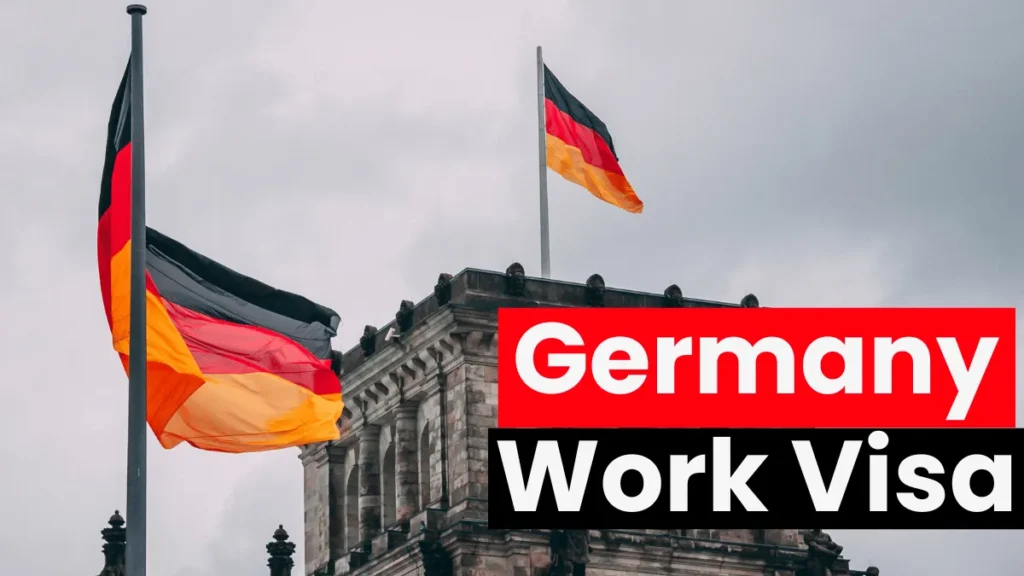
Moving to Germany for work is a great decision, as Germany ranks as the fourth-largest global economy and highly values skilled foreign professionals. The Skilled Immigration Act, effective since March 2020, has introduced flexible regulations, making it easier for skilled non-European workers to find opportunities and contribute to the German workforce.
Depending on your nationality and background, you may need a work visa or permit to live and work legally in Germany. Below is a complete guide on the types of work visas, requirements, necessary documentation, and benefits associated with working in Germany.
Why Germany Attracts Skilled Workers
Germany is a favored destination for international job seekers, thanks to its strong economy, diverse job sectors, and competitive salaries. Various industries, particularly those requiring high-level skills, offer numerous employment opportunities. Key sectors with high demand for talent include:
- Mechanical and Automotive Engineering
- Electronics and IT
- Construction and Civil Engineering
- Healthcare
Types of German Work Visas
There are several visa options for international workers in Germany. Here’s a look at some popular types:
- Germany Opportunity Card
A flexible option for those without a permanent job contract, the Opportunity Card allows skilled individuals to enter and seek work in Germany. Points are awarded based on qualifications, making this visa accessible to a wide range of skilled professionals. - EU Blue Card
Designed for highly skilled professionals, the EU Blue Card grants permission to work in fields facing a labor shortage. This visa allows individuals to stay and work in Germany for up to four years, with the option to extend if eligibility requirements are met.
Key Requirements for a German Work Visa
Your work visa eligibility largely depends on Germany’s labor market needs and specific qualifications. Some of the critical requirements include:
- Recognized Qualifications: Degrees or vocational training certifications must be recognized in Germany.
- Job Offer: Proof of a job offer from a German employer.
- Relevant Experience: Skills and qualifications that match the job you’re pursuing.
- Self-Employment Criteria: If self-employed, a viable business plan is necessary to show the potential for sustainable income.
Essential Documents for Application
Applicants will need to provide several important documents, such as:
- Valid passport (issued within the past ten years and with at least two blank pages)
- Two completed work visa application forms
- A declaration of accurate information
- Two recent passport-size photos
- Proof of residence in your home country
- Proof of job offer or employment contract
- For self-employed applicants: business plan, financial details, and German contacts
- Proof of health insurance covering at least the first 90 days
- Accommodation proof (rental agreement, hotel reservation, or host’s address)
- Travel health insurance with minimum coverage of €30,000
Employee Benefits in Germany
Germany offers a well-structured social security system and various employee benefits:
- Retirement and Social Security: Both employers and employees contribute equally to social security, totaling an 18.6% contribution.
- Unemployment Benefits: Employees working a minimum of 12 months qualify for unemployment benefits. Employers and employees share a 2.5% contribution rate.
- Paid Leave: Full-time employees typically receive between 20 to 30 days of paid vacation annually, depending on their weekly work schedule.
- Workers’ Compensation: Employers alone cover the cost of insurance that protects employees in case of work-related illnesses or injuries.
- Healthcare: Mandatory health insurance includes public plans, with contributions of 14.6% split evenly between employers and employees. High earners may opt for private health insurance.
Application Steps
To apply for a German work visa, follow these steps:
- Obtain a job offer from a German company.
- Collect all necessary documents listed above.
- Submit a German work permit application.
- Provide biometric data, such as fingerprints, if requested.
- Pay the visa processing fee (approximately €75).
- Schedule and attend an appointment at a German embassy in your country.
- Complete an interview for the visa.
If approved, your work visa will allow you to live and work in Germany, provided you meet all eligibility requirements.
Visa Application Fee
The German work visa fee is approximately €75, payable by cash, credit card, or bank draft, depending on the embassy requirements. Fees are non-refundable, even if your application is denied.
Navigating the German work visa process is critical when hiring employees in Germany. Employers should ensure they offer benefits aligned with German labor regulations to attract and retain top talent effectively.
- Kuwait Work Visa Guide – November 2024
- Thailand Work Visa Process (November 2024): Requirements, Benefits & Application Steps
- How to Apply for a UK Work Permit Independently (November 2024 Update)
- Canada Work Visa Jobs for November 2024: Top Opportunities for Employment in Canada
- Canada Open Work Permit November 2024: Eligibility, Requirements, Benefits & Application Process
- List of Jobs in Australia Offering Visa Sponsorship for Foreign Nationals in November 2024
- Skilled Worker Opportunities in Luxembourg with Visa Sponsorship 2024 (€2000 to €8000 Monthly)
- Luxembourg Companies Offering Work Visa Opportunities in November 2024 (€15 Per Hour
- Germany, France, and Portugal Introduce New Visa Pathways for Skilled Workers in Tourism and Hospitality

Leave a Reply